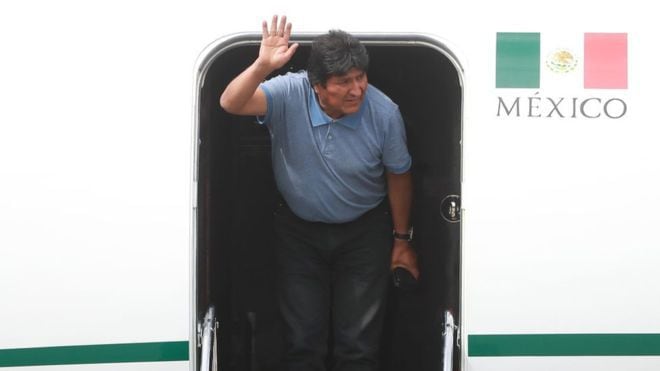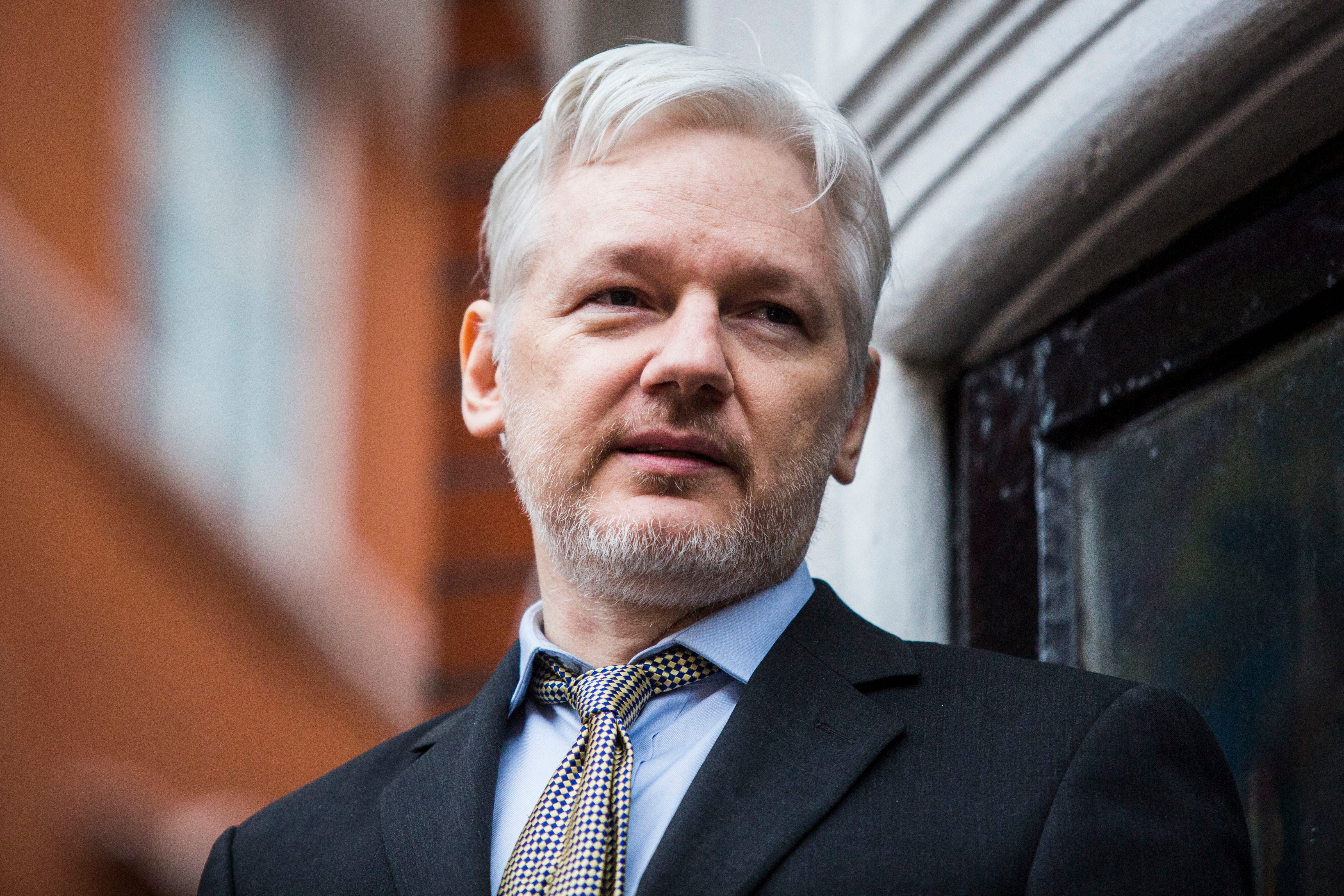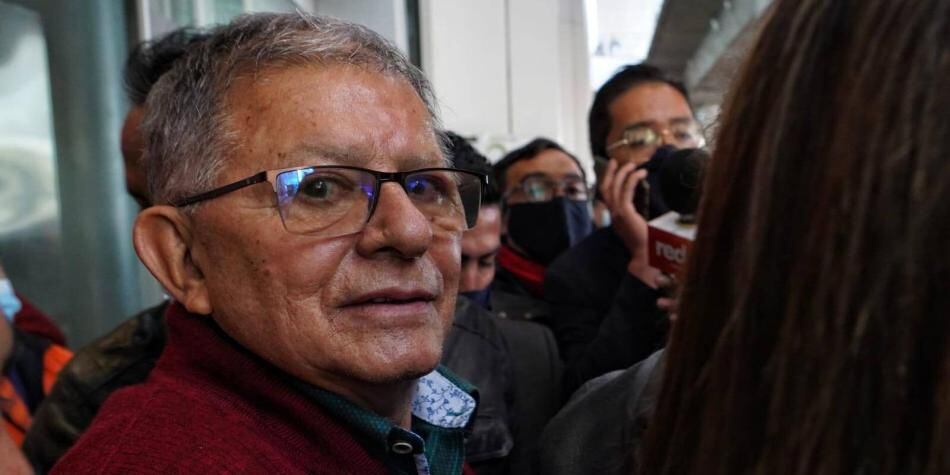“(Pedro Castillo) He spoke here to the office so that they would notify me that he was going to the Embassy (of Mexico in Lima), but surely they had already tapped his phone, and he was going to request asylum and if they would open the door of the Embassy for him. I looked for Marcelo Ebrard and informed him that he should speak to the ambassador and they would open the door for him”.
LOOK: “Oh, how scary, look how I’m shaking,” says AMLO about the hashtag #SiguesTuAMLO
This is how the President of Mexico, Andrés Manuel López Obrador (AMLO), narrated during his already traditional Mañanera on Thursday, how the communication with the former Peruvian president, Pedro Castillo, took place after the Congress of the Republic vacated him after an attempt to coup.
One day after his arrest, Mexican Foreign Minister Marcelo Ebrard explained that Castillo submitted an asylum application early Thursday morning and ratified it at noon during an interview with the ambassador of the North American country, Pablo Monroy, who visited him at the prison. where he is confined
“We have proceeded to initiate consultations with the Peruvian authorities,” said the Mexican foreign minister.
AMLO’s actions have been questioned by both Peruvian and Mexican representatives, who consider it an interference in the affairs of another country, a clear contrast to the “non-intervention” stance adopted by the Mexican government since the 1990s.
“Why don’t you resort a little to the prudence that they had, for example, in Chile or Colombia, even Lula (Da Silva) himself,” said the independent Mexican senator Emilio Álvarez Icaza to the CNN Conclusions program.
“(AMLO) issues opinions, pours lessons, moralizes and wants to intervene saying that it is not an intervention. What it has managed to do is make Mexico’s relationship with all of Latin America more difficult,” said the former Mexican ambassador to Cuba, Ricardo Pascoe, for the same North American chain.
This, however, is not the first time that the AMLO government has been actively involved in a political crisis in another country.
ASYLUM TO EVO
One of the most important points of Mexican foreign policy during the last century was its openness to offer asylum to those who were considered persecuted in their countries.
Under this condition, personalities such as Fidel Castro, Manuel Zelaya, León Trotski or the Peruvian politician Víctor Raúl Haya de la Torre arrived in the North American country.
However, Mexico changed the way it participated in the problems in the region during the 1990s, remaining reluctant to accept new political asylees.
At least until 2019.

After the social outbreak that was generated in Bolivia due to the alleged electoral fraud that would grant a new presidential term to Evo Morales, the leader of the Movement for Socialism (MAS) resigned from office, fled La Paz and took refuge in Cochabamba while the country it was plunged into chaos due to the power vacuum left by his departure.
The next day, November 11, 2019, Mexican Foreign Minister Marcelo Ebrard announced that he had received a call from Morales asking for political asylum in his country, the same one that was granted.
“The Mexican Foreign Ministry has decided to grant Mr. Evo Morales political asylum for humanitarian reasons and due to the emergency situation he is facing in Bolivia, where his life and integrity are at risk,” Ebrard said.
That same night, Morales would board a plane that would take him from Bolivia to Mexico, a country where he would be received with great fanfare by the same foreign minister.
Along with Morales traveled his vice president Álvaro García Linera and the former president of the Senate, Gabriela Montaño, who also resigned their posts during the crisis.
From Mexico, Morales directed various public messages against the interim government of Jeanine Áñez, was recognized as a distinguished guest by the head of the Government of Mexico City, Claudia Sheinbaum, and assured that AMLO -who dedicated a speech to him from the Zócalo de la Mexican capital – had “saved his life.”
The population, however, was not in favor of Evo’s stay in the country, as reflected in surveys where between 55% and 68% of citizens rejected his presence.
The opposition, on the other hand, criticized how the AMLO government disposed of state resources to attend to its ally during his stay.
Three weeks later, Evo would leave for Argentina. That time, unlike his welcome, there were no official ceremonies or live broadcasts of the event. Not even a photo. The then Foreign Minister Felipe Solá clarified that Morales would maintain his asylum status but prevented him from “using this place to do politics and make public statements.”
On November 9, 2020, a year after his departure, Evo returned to Bolivia wrapped in the victory of his former minister and political ally, Luis Arce.
ASSANGE IS WELCOME
After the British justice system rejected, in January 2021, in the first instance, the extradition to the United States of the Australian journalist, founder of WikiLeaks and accused of espionage, Julian Assange, AMLO celebrated by saying that “he is a journalist and deserves a chance” before offer to seek asylum in your country.
“Mexico offers him political asylum, which is protection and at the same time the responsibility to take care that the asylum beneficiary does not interfere in the political affairs of any country… we congratulate the British justice system,” he added during his Mañanera that day.
The president did not provide further details in this regard and the issue was not addressed again until May of this year. In a new press conference, AMLO assured that the Ministry of Foreign Affairs (Foreign Ministry) had contacted Assange’s defense to offer him asylum.

It should be noted that this communication occurred after the British justice system responded to an appeal by the US government and authorized the extradition of the journalist, although this was interrupted by an appeal filed by the defense of the founder of WikiLeaks.
“There has been communication with the Ministry of Foreign Affairs and, yes, we offer asylum and we are in favor of his release because he is politically persecuted. It is a shameful act that a person who discloses valuable information, because in that information there are acts of corruption, in that information crimes committed between governments are revealed, everything that the elite carries out in secret suddenly comes out an investigation that they carry out and the person who presents the information is punished because he is allegedly violating confidential matters,” AMLO said on that occasion.
To date, Assange is still being held in a British prison and it is unknown if he ever formalized a request for asylum in Mexico.
CORREIST CONGRESSMANS
The wave of street protests that broke out in October 2019 in Ecuador after the government eliminated fuel subsidies led four deputies from the Revolución Ciudadana movement and two former government officials, all of whom were close to former President Rafael Correa, to take refuge. at the Mexican embassy in Quito.
In January 2020, the AMLO government granted diplomatic asylum to these six people and their families, who arrived in the North American country aboard a commercial flight, the Ecuadorian Foreign Ministry detailed at the time.
The refugees were the former president of Congress, Gabriela Rivadeneira, the parliamentarians, Carlos Viteri, Soledad Buendía and Luis Molina; the former vice minister Tania Pauker and the former private secretary of Correa, Edwin Jarrín.
The group of opponents arrived at the Mexican diplomatic headquarters seeking “protection and shelter” after three correista officials were arrested for promoting the protests and accused of rebellion.
It should be noted that by then the former Ecuadorian Foreign Minister Ricardo Patiño, on whom a prison order weighs for alleged instigation against the government of Lenín Moreno, was also taking refuge in Mexico.
WANTED BY INTERPOL
In October 2021, a confusing incident occurred at the Mexico City airport that could have resulted in a diplomatic conflict between the governments of Colombia, Paraguay, and Mexico.
The former FARC guerrilla, considered at the time as “the chancellor of the guerilla”, Rodrigo Granda, was detained after his arrival in Mexico City, where he was preparing to participate in a meeting with other leftist political groups.

Granda is accused by the Paraguayan justice of planning the kidnapping and murder of Celia Cubas, daughter of former president Julián Cubas, in 2004. As a result of said crime, Interpol maintains a red circular against the former guerrilla leader.
Despite this, the Mexican authorities allowed Granda to board a new plane to return to Bogotá.
The fact generated discomfort in Asunción, the same ones to which AMLO responded with arguments that showed that he was little aware of the subject.
“He requested or was offered asylum, it is probable, and he decided to return to his country, and they detained him there. I think he raised it and surely Foreign Relations can explain it, but we do protect those who ask for asylum,” López said during a press conference.
“This bothers the right a lot, but they are given the chance to stay here, because they invited him to a meeting of Latin American leaders organized by the PT, then they stop him and his lawyers, defenders intervene, SRE intervenes but he decided ‘I’m going back to my country’ and he’s gone,” he added.
Source: Elcomercio
I am Jack Morton and I work in 24 News Recorder. I mostly cover world news and I have also authored 24 news recorder. I find this work highly interesting and it allows me to keep up with current events happening around the world.

:quality(75)/cloudfront-us-east-1.images.arcpublishing.com/elcomercio/JUGMBM72YNGSVEVX4SZWMCTILE.png)

:quality(75)/cloudfront-us-east-1.images.arcpublishing.com/elcomercio/6T6INW47VFEAZBZ5N2XYOVHXHI.jpg)
:quality(75)/cloudfront-us-east-1.images.arcpublishing.com/elcomercio/WFGVGDBK7ZFTJGAZVAZG6FD6TI.jpg)
:quality(75)/cloudfront-us-east-1.images.arcpublishing.com/elcomercio/OCBSDWM6DNECBBKZJ6PCWJB67Q.jpg)
:quality(75)/cloudfront-us-east-1.images.arcpublishing.com/elcomercio/SY3SHBR6JBE2NCKXW5SVUCDX2U.jpg)
